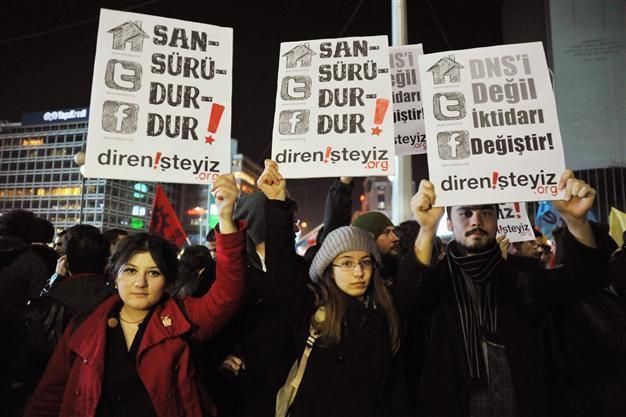Turkey Internet law raises 'serious concerns': EU
BRUSSELS - Agence France-Presse

People shout slogans as they hold placards that read "stop censorship" during a rally in Ankara. AFP Photo
Turkey's new Internet law raises "serious concerns" over government control and the public's access to information, the European Commission said Thursday."This law is raising serious concerns here. The law in its current form introduces several restrictions on freedom of expression," Commission spokesman Peter Stano said.
"The Turkish public deserves more information and more transparency, not more restrictions." Since Turkey is a candidate for EU membership, the law "needs to be revised in line with European standards," Stano told a press briefing.
The European Union has made clear several times that this and other recent legal changes must meet European norms, said Stano, spokesman for EU Enlargement Commissioner Stefan Fuele who leads the talks on Turkey's EU membership.
"These issues are regularly raised and discussed when the Commissioner meets his Turkish counterpart ... we are raising these issues constantly," he said.
Brussels is "monitoring very closely" how Turkey meets the membership criteria, he added.
Parliament in Ankara passed the new law late Wednesday, sparking fresh charges that Prime Minister Recep Tayyip Erdoğan is cracking down on press and other freedoms so as to stop a deeply damaging corruption probe entangling some of his closest allies.
It permits a government agency, the Telecommunications Communications Presidency (TIB), to block access to websites without a court order if they are deemed to violate privacy or have content seen as "insulting".
The TIB will also be able to request users' communications and traffic information from providers who will be obliged to keep up to two years' worth of data, again without a court order.
Critics said the measures, besides their domestic impact, would make already difficult talks on EU membership even more problematic.
















